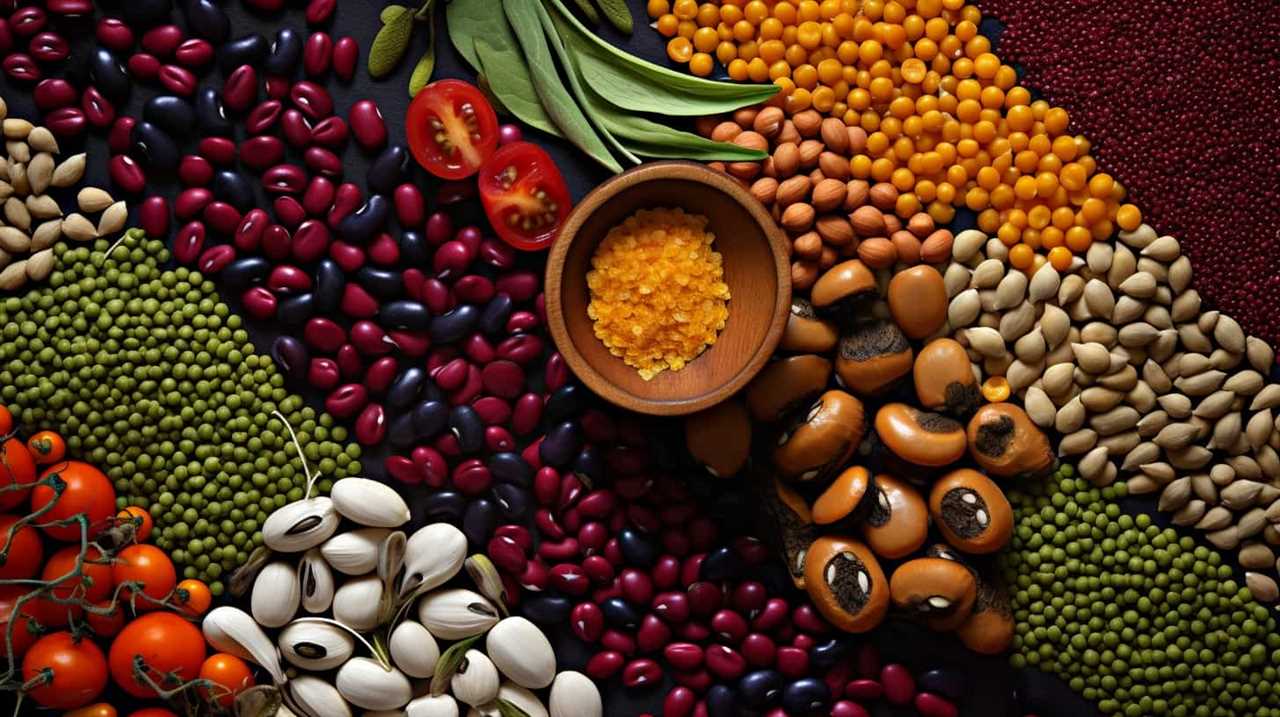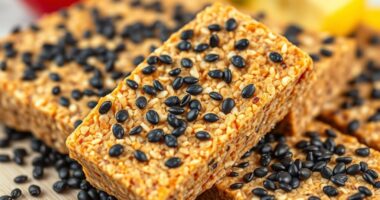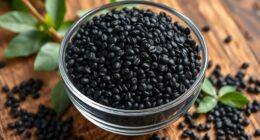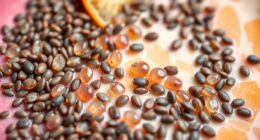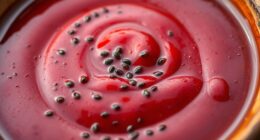Come with us on our journey as we discover the wonders of a gluten-free diet, fueled by tiny powerhouses.
Join us as we explore the incredible benefits of chia seeds for those following a gluten-free lifestyle.
These little gems not only support digestive health, but also pack a nutritional punch.
From managing blood sugar levels to being a versatile ingredient in gluten-free cooking, chia seeds truly are a game-changer.
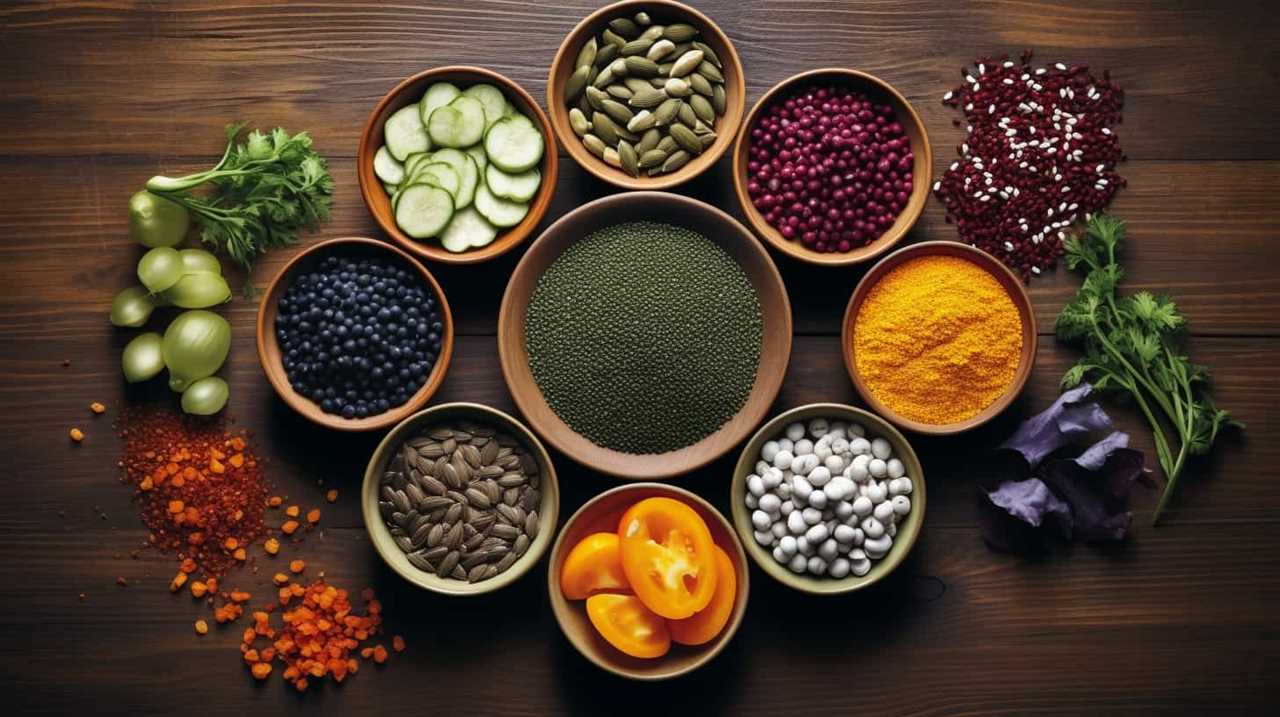
Let’s embark on this adventure together and uncover the secrets of these mighty, yet humble, seeds.
Key Takeaways
- Chia seeds are a versatile ingredient that can be used in a variety of recipes.
- Chia seeds can be used as a substitute for eggs in baked goods, making them suitable for those with egg allergies or following a vegan diet.
- Chia seeds can aid in weight loss by keeping you feeling fuller for longer and reducing appetite.
- Chia seeds are packed with nutrients, including protein, iron, magnesium, zinc, and antioxidants, providing numerous health benefits.
Benefits of Chia Seeds for Gluten-Free Diets
We love incorporating chia seeds into our gluten-free diets because of their numerous benefits. Chia seeds aren’t only a great source of nutrients, but they also offer a wide range of possibilities for those following a gluten-free lifestyle.
When it comes to gluten-free baking, chia seeds can be used as an excellent substitute for eggs. They act as a binding agent and add moisture to recipes, making them perfect for creating delicious and fluffy gluten-free baked goods.
Additionally, incorporating chia seeds into a gluten-free breakfast routine can provide a boost of energy and essential omega-3 fatty acids. Simply sprinkle them on top of yogurt or add them to smoothies for a nutritious and satisfying morning meal.
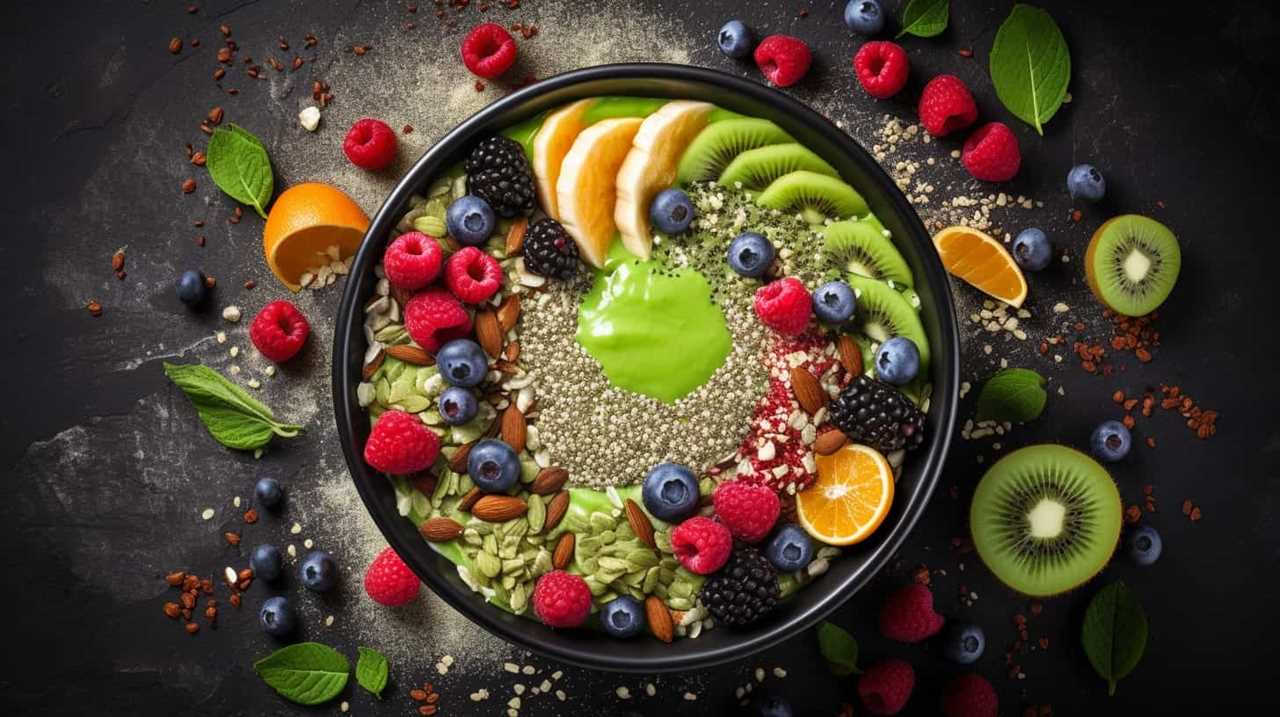
With their versatility and nutritional benefits, chia seeds are a valuable addition to any gluten-free diet.
How Chia Seeds Support Digestive Health
Chia seeds play a vital role in supporting digestive health. These tiny powerhouses are packed with fiber, which is essential for maintaining a healthy digestive system. Fiber helps to regulate bowel movements and prevent constipation. Additionally, chia seeds absorb water and form a gel-like substance in the stomach, which can aid in digestion and promote a feeling of fullness.
Research suggests that chia seeds may also support weight loss. The high fiber content of chia seeds can help control appetite and reduce calorie intake. Furthermore, chia seeds are low in calories and rich in nutrients, making them a great addition to a weight loss diet.
In terms of heart health, chia seeds are a good source of omega-3 fatty acids, which have been shown to reduce inflammation and lower the risk of heart disease. Omega-3s can also help regulate cholesterol levels and blood pressure.
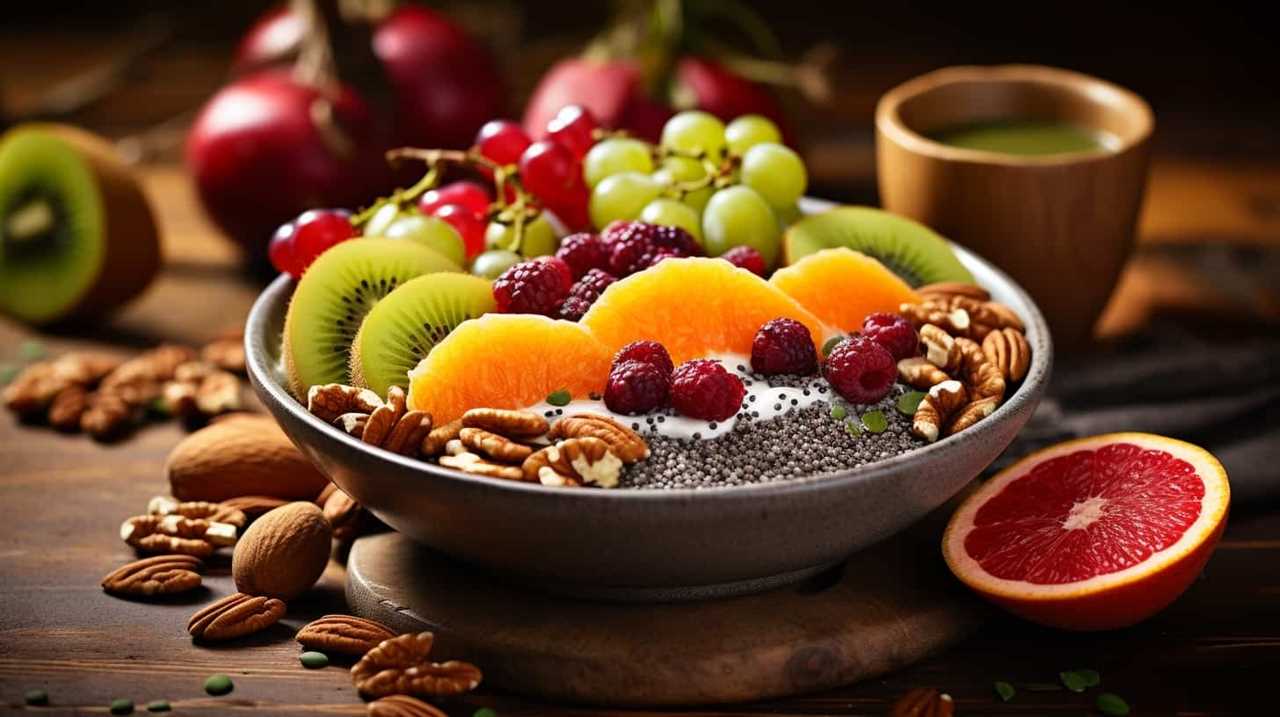
Incorporating chia seeds into your diet can have numerous benefits for digestive health, weight management, and heart health.
Chia Seeds: A Nutrient Powerhouse for Gluten-Free Diets
Continuing our exploration of the benefits of chia seeds, these tiny powerhouses are a nutrient powerhouse for gluten-free diets. Chia seeds aren’t only gluten-free, but they also offer a wide range of essential nutrients. They’re packed with fiber, protein, omega-3 fatty acids, and antioxidants, making them a great addition to any gluten-free diet.
Chia seeds can be easily incorporated into various recipes, such as smoothies, puddings, and baked goods. Their unique gel-like texture makes them a perfect ingredient for thickening soups and sauces. Chia seeds can also be used as an egg substitute in vegan baking, providing a moist and fluffy texture.
In terms of their nutritional profile, chia seeds are rich in fiber, which aids in digestion and helps maintain a healthy weight. They’re also a good source of plant-based protein, making them an excellent option for those following a gluten-free and vegetarian or vegan diet.
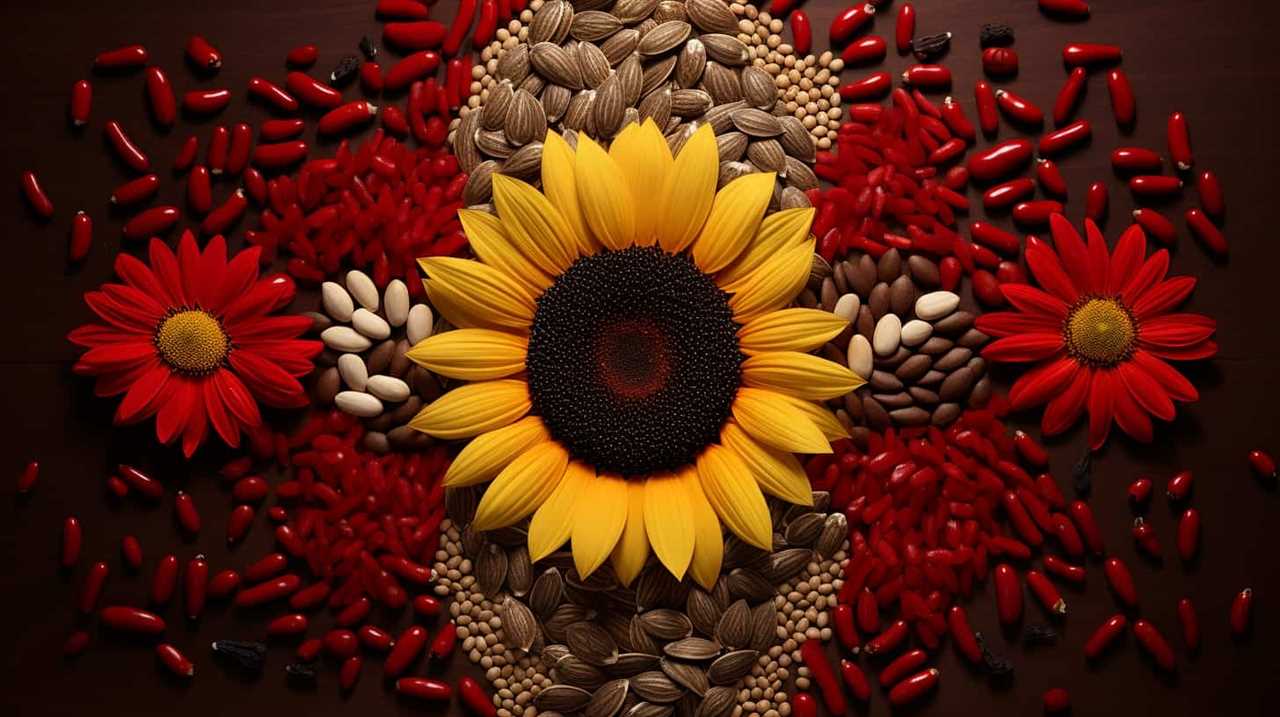
The Role of Chia Seeds in Managing Blood Sugar Levels
As we delve deeper into the benefits of incorporating chia seeds into a gluten-free diet, it’s important to explore the significant role these tiny powerhouses play in managing blood sugar levels. Chia seeds have gained popularity for their ability to regulate blood sugar levels, making them an excellent addition to a diabetic-friendly diet.
Here are a few key reasons why chia seeds are beneficial for managing blood sugar levels:
- Chia seeds are rich in fiber, which helps slow down digestion and the absorption of carbohydrates. This can prevent blood sugar spikes and promote stable blood sugar levels.
- Chia seeds are a good source of omega-3 fatty acids, which have been shown to improve insulin sensitivity and reduce inflammation, both of which are important for managing blood sugar levels.
- Studies have found that chia seeds can help promote weight loss, and maintaining a healthy weight is crucial for managing blood sugar levels.
- Chia seeds are low in carbohydrates and high in protein, which can help keep you feeling full and satisfied, reducing the risk of overeating and subsequent blood sugar spikes.
Incorporating chia seeds into your diet can be a simple and effective way to support healthy blood sugar management.
Chia Seeds: A Versatile Ingredient in Gluten-Free Cooking
We can explore the versatility of chia seeds as a gluten-free cooking ingredient. Chia seeds have gained popularity in recent years due to their numerous health benefits. Not only are they gluten-free, but they’re also packed with fiber, protein, and omega-3 fatty acids.
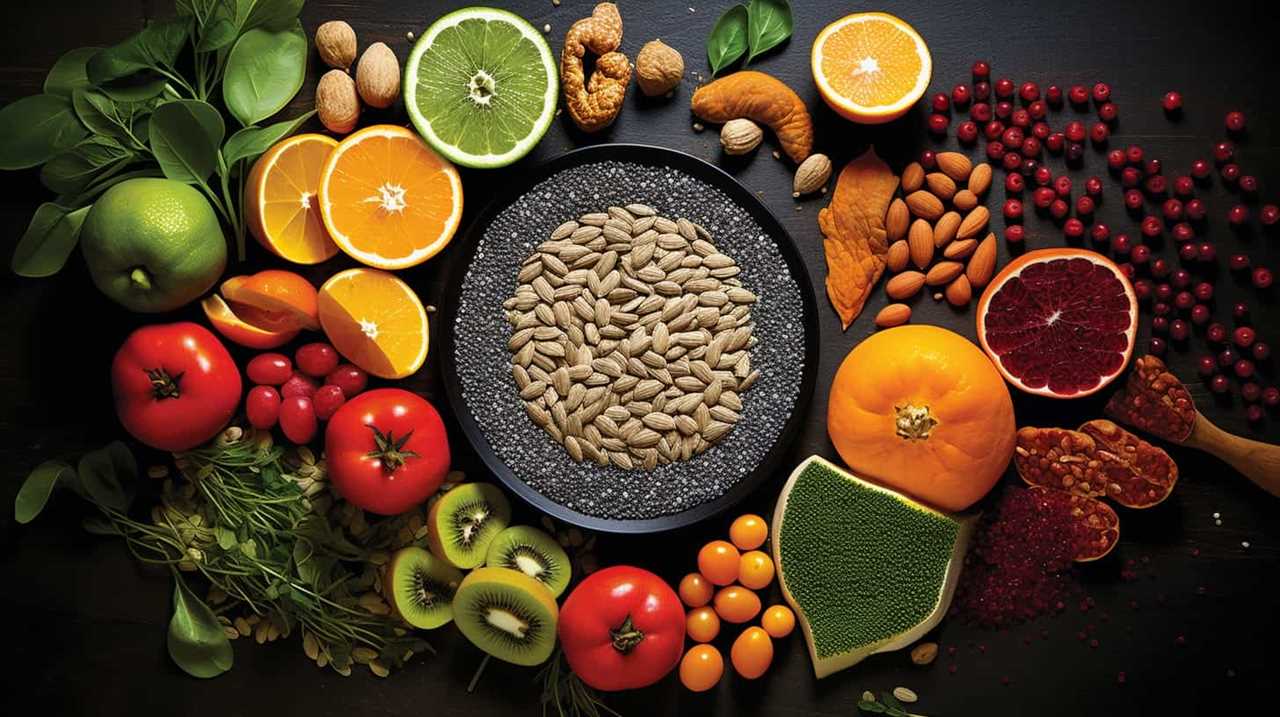
These tiny seeds can be used in a variety of recipes, from breakfast to desserts. Chia seed pudding is a popular choice for a nutritious and delicious gluten-free breakfast option. Chia seeds can also be used as an egg substitute in baking, making them a versatile ingredient for those following a gluten-free diet.
Whether you’re looking to add more nutrients to your meals or experimenting with new recipes, chia seeds are a great addition to any gluten-free pantry.
Frequently Asked Questions
Are Chia Seeds Suitable for People With Celiac Disease?
Chia seeds are suitable for people with celiac disease. They support gut health by providing fiber and omega-3 fatty acids. Additionally, they do not contain gluten, making them a safe option for those with gluten intolerance.
Can Chia Seeds Be Used as a Substitute for Gluten-Containing Ingredients in Baking?
Chia seeds can indeed be used as a substitute for gluten-containing ingredients in baking. They are versatile and packed with nutrients. Try chia seed recipes to enjoy the benefits of these tiny powerhouses in your gluten-free diet.
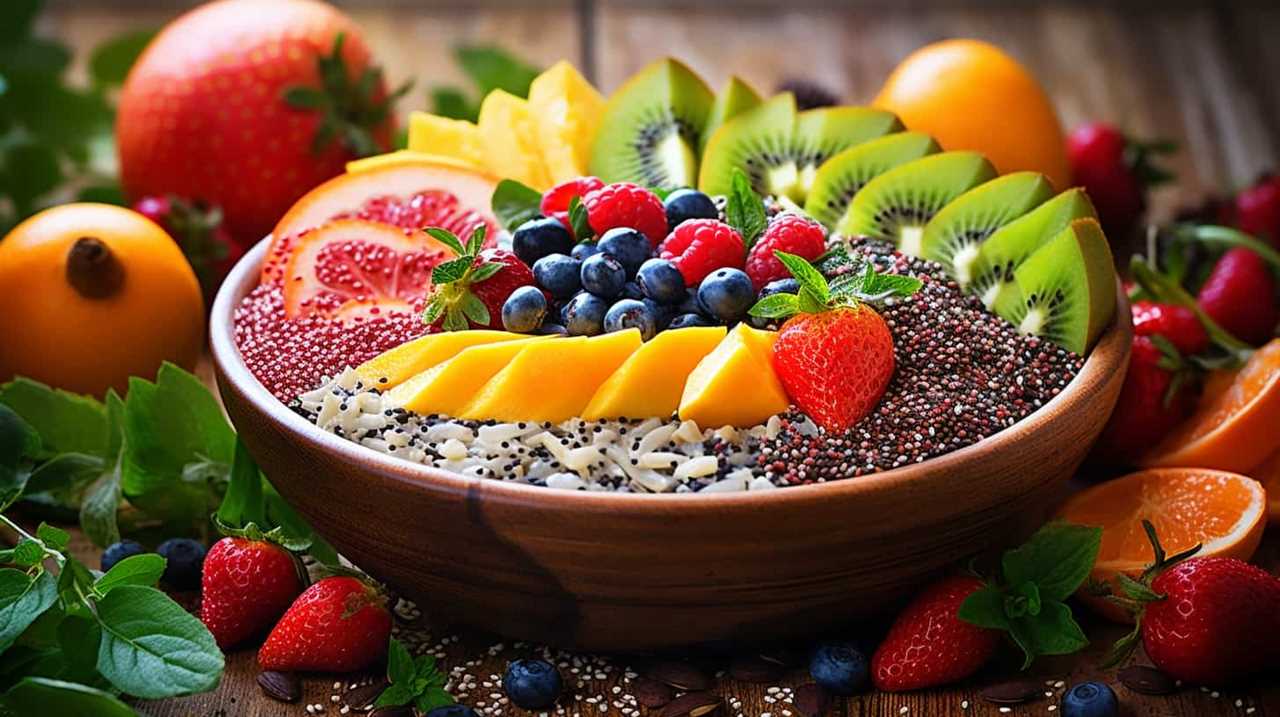
How Do Chia Seeds Contribute to Weight Management in Gluten-Free Diets?
Chia seeds are a great addition to gluten-free diets, as they offer numerous benefits for weight management and digestive health. Their high fiber content promotes satiety and regularity, contributing to overall well-being.
Can Chia Seeds Help Reduce Inflammation in Individuals With Gluten Sensitivity?
Chia seeds can potentially reduce inflammation in individuals with gluten sensitivity. They are rich in Omega 3 fatty acids, which have been shown to have anti-inflammatory properties. Additionally, chia seeds promote digestive health.
Are There Any Potential Side Effects or Allergic Reactions Associated With Consuming Chia Seeds in a Gluten-Free Diet?
There may be potential side effects or allergic reactions when consuming chia seeds in a gluten-free diet. It’s important to be aware of these risks and consult with a healthcare professional if needed.
Conclusion
In conclusion, chia seeds are truly the tiny powerhouses of a gluten-free diet. With their numerous benefits for digestive health, high nutrient content, and ability to manage blood sugar levels, they’re a versatile ingredient that can be enjoyed in various gluten-free recipes.
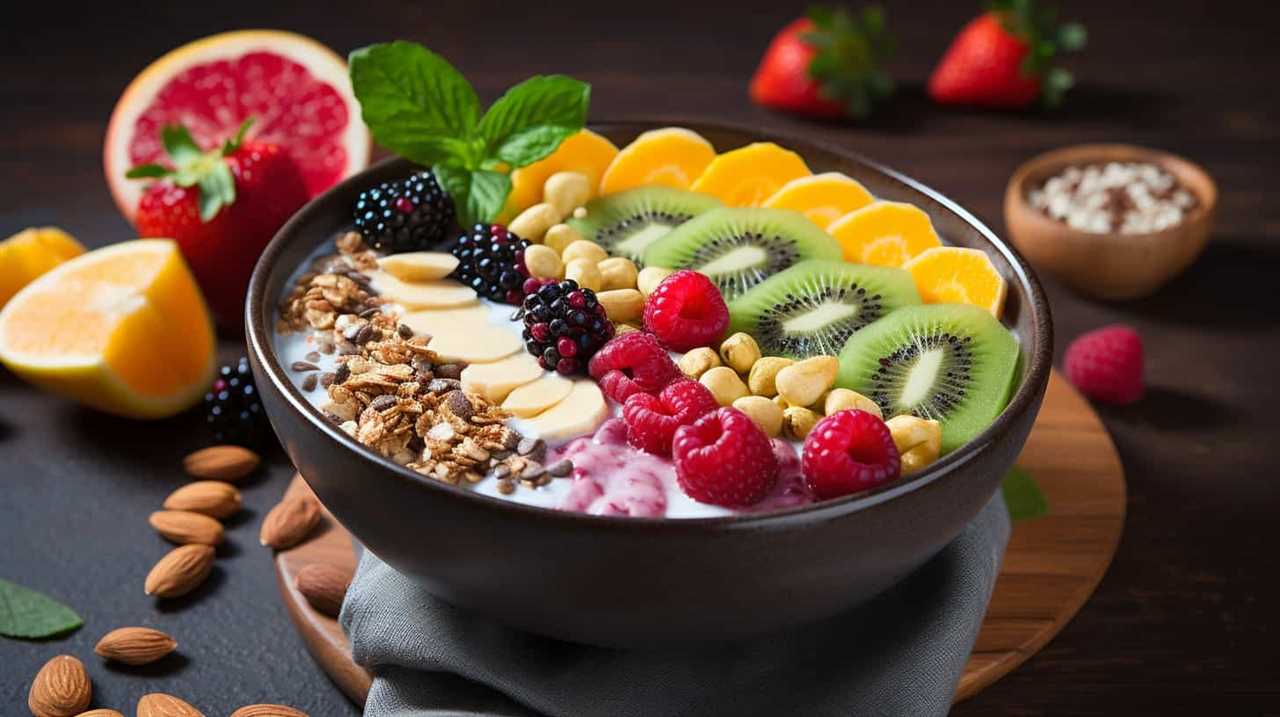
So why not sprinkle some chia seeds on your next meal and let these little wonders work their magic?
Remember, good things come in small packages!


